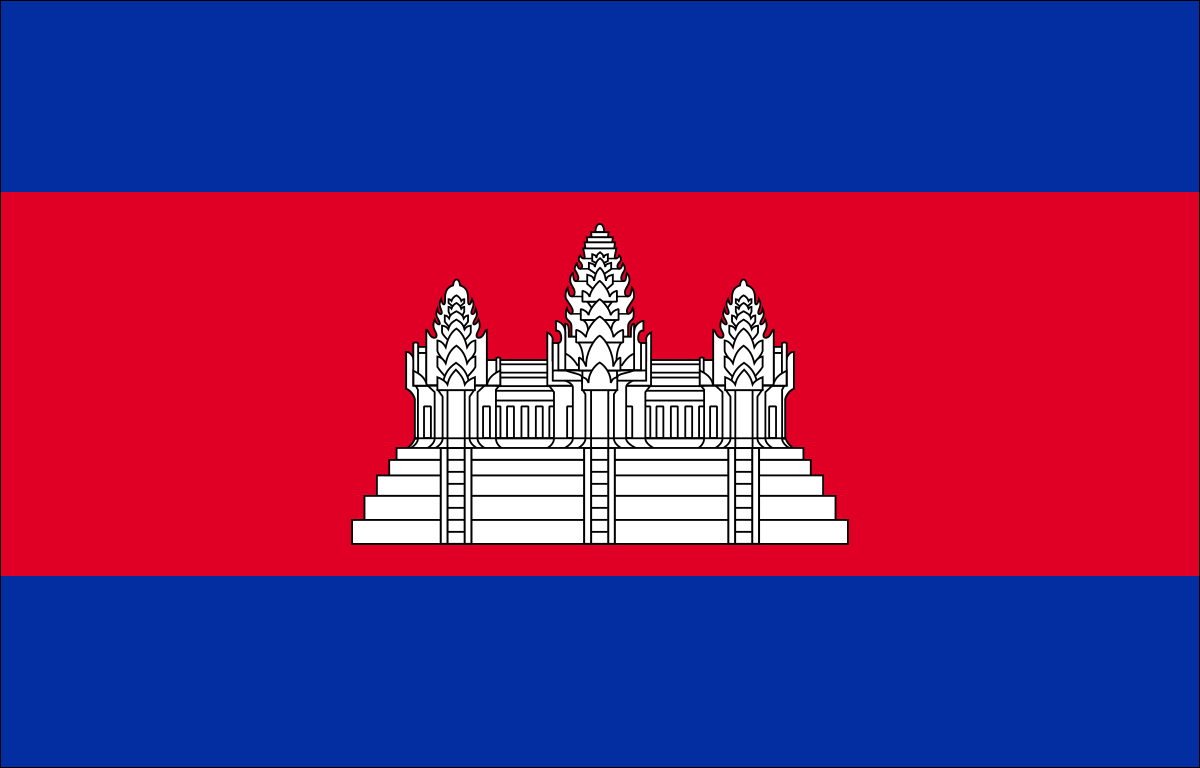
Breadcrumb
Cambodia

Capital:
Phnom Penh
Land Area:
176,515km²
Inland Water Area:
4,520km²
Length of Coastline:
435km
Cambodia has implemented the ICM framework along 100% of its 435km coastline, covering the four coastal provinces of Kampot, Kep, Koh Kong, and Preah Sihanouk. The Government of Cambodia has established a national ICM scaling up program that promotes ICM as a national approach to sustainably manage coastal and marine resources in the country. The ocean and water resources are important to Cambodia and Cambodians. The fisheries sector is the fourth-largest employer in Cambodia, employing about 385,000 people in 2007. It is also the fourth-biggest contributor to the country's gross domestic product (GDP).
Cambodian ICM implementation is founded on over a decade of experience on ICM implementation at the national ICM demonstration site in Preah Sihanouk, which began in 2001. ICM implementation in Preah Sihanouk covers 176km of coastline and 2,397km2 land area. Through a learning-by-doing approach that encourages local capacity development, ICM is providing practical solutions to coastal and marine management issues, benefiting over 200,000 stakeholders in the Province.
The ICM Program in Preah Sihanouk is addressing a variety of issues including: pollution reduction and waste management in Sangkat 4 through a community-driven waste collection and a micro-credit facility for sanitation facilities; livelihood management and sustainable coastal tourism in Occheuateal Beach; water use and supply management in Stung Hav District; and habitat protection and management of about 1,060ha of mangrove areas in Otress and Tomnob Rolok, Stung Hav and Kompong Smach, Prey Nup Districts. In 2016, motivated by the socio economic and environmental gains from the effective management of Preah Sihanouk, the other three coastal provinces started implementing their own provincial ICM programs.
Other sustainable efforts by the Royal Government of Cambodia include: (1) implementation of the Gulf of Thailand (GOT) Regional Framework Programme for Oil Spill Preparedness and Response; (2) implementation of the Port Safety Health and Environmental Management Systems in Phnom Penh and Sihanoukville Autonomous Ports ; (3) preparation of Cambodia’s State of the Ocean and Coasts Report and; (4) development of on-the-ground activities addressing climate change and disaster risk reduction, habitat protection and restoration, water use and supply management, and pollution reduction and waste management under the broader ICM management framework of coastal provinces.
Focal Points:
H.E. Thay Chantha (Principal National Focal Point)
Deputy Secretary General of the National Committee for Cambodian Coastal Management and Development and Concurrent Deputy Director General of the General Directorate of Protected Areas in the Ministry of Environment (MoE)
Mr. Roath Sith (Alternate National Focal Point)
Deputy Director-General, General Directorate of Environmental Protection, MoE
RELATED PUBLICATIONS
PEMSEA Annual Report 2024: A Year of Collaboration: Driving Blue Synergies Towards Resilient Coasts and Ocean in the East Asian Seas Region
2024 was a landmark year for PEMSEA with the successful organization of the EAS Congress 2024 and the 8th Ministerial Forum as key highlights. These milestone events led to stronger and renewed commitments to drive synergistic actions towards sustainable, inclusive and resilient coasts, ocean and communities, aligned with national priorities and global and regional targets.
Check out progress and plans of PEMSEA's projects that address complex interconnected environmental challenges in the region: marine plastic pollution, biodiversity loss and climate change through rigorous baseline data collation, analysis and reporting; enhancing governance and investment plans and programs; knowledge management and technical skills and capacity development.
PEMSEA eBulletin - April 2025
Dear PEMSEA community,
April is packed with exciting progress and developments across the region!
PEMSEA is making waves at the 10th Our Ocean Conference in Busan by organizing a side event that brought together regional partners committed to support governments in meeting their 30x30 conservation targets while enhancing protection of our valuable marine ecosystems.
Looking toward the future, PEMSEA's Executive Committee (EC) Meeting in Busan endorsed plans to extend our Sustainable Development Strategy implementation to 2030. The EC also noted progress on our regional Blue Carbon Program and finalized the timeline for upcoming Partnership Council elections.
We're also proud to announce the release of "Threads of Resilience," the sixth edition of our Integrated River Basin Management Project newsletter. This issue tells inspiring narratives of women from the Sasmuan Pampanga Coastal Wetlands alongside the impactful work of female environmental leaders driving change across Southeast Asia and critical conservation needs for key project sites, including Indonesia's Ciliwung River.
Other important developments include the PNLG Executive Committee's announcement of upcoming elections and General Assembly in Jakarta, the successful launch of the GEF/UNDP/ASEAN Integrated River Basin Management Project in Viet Nam, and regional training initiatives to enhance blue carbon knowledge and integrated coastal management strategies in Xiamen, China.
Integrated River Basin Management Project Newsletter - Edition 6
"Threads of Resilience” marks the sixth edition of the Integrated River Basin Management (IRBM) Project's newsletter, spotlighting inspiring narratives of women and advancements in project implementation.
This issue features threads of resilience in the stories of women from the Sasmuan Pampanga Coastal Wetlands of the Pasac-Guagua Watershed in the Philippines, alongside the impactful work of women leaders driving environmental change across Southeast Asia. It also highlights the need to conserve key project sites, including the Ciliwung River in Indonesia.
Key project activities and milestones from the first quarter of 2025 include the ongoing formulation of a framework and solutions template for pilot project development in the seven priority river basins, Lao PDR's approval of the 2025 Work Plan and State of the River Basin Report for the Nam Tha River Basin, and stakeholder validation workshops for the State of River Basin Reports for the Imus-Ylang Ylang and Rio Grande Rivers, as well as the Pasac-Guagua Watershed.
These interconnected efforts are key components of a strengthening web of partnerships and collaboration within the ASEAN region.


